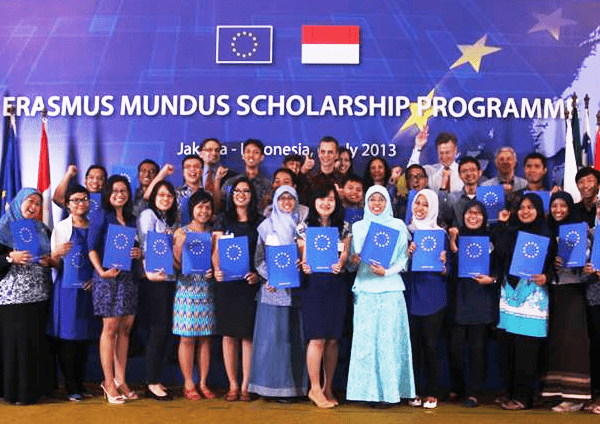The coveted Erasmus Mundus scholarships have been given to 161 Indian students, 88 of whom are women, for degree programmes beginning in the academic year 2022–2023. With the most students receiving this award out of 167 nations, India tops the list for the second consecutive year.
The recipients of the scholarships supported directly by Erasmus Mundus this year came from 19 different states in India, with many of them being students at some of the top universities in the country.
The European Union Delegation in India organised a celebration to mark this achievement in order to mark this historic milestone. The EU’s Erasmus+ programme will soon send Indian students who have been awarded scholarships for the Erasmus Mundus Joint Masters Degree (EMJMD) to Europe to pursue their higher education. The EU Ambassador to India and Bhutan, HE Mr. Ugo Astuto, commented on the scholarship awards and noted that more than 6000 Indian academics and students had already benefitted from Erasmus Mundus scholarships.
“This underlines the expanding mobility and people-to-people ties between the EU and India, which is a crucial tenet of our alliance. Scholarships under the Erasmus+ programme provide a once-in-a-lifetime chance for professional and personal growth. Given the variety of Europe, it allows students to develop their knowledge while also gaining a diverse cultural experience, he noted. Students from India who are chosen for the Erasmus Mundus cohort for 2022–2024 will have the chance to study and perform research at least twice at different European institutions and earn joint, double, or multiple degrees. In addition, the fully funded scholarship will pay the recipient’s living expenses, travel expenses, and participation fees.
Previously, 153 Indian students were awarded Erasmus Mundus fellowships in 2021. Currently, there are approximately 4,000 higher education institutions in Europe, ranging from large research universities to tiny schools that prioritise instruction. These institutions serve more than 17 million students and 1.5 million academics, including 435,000 researchers. In the engineering framework, students have selected courses in ICT, green technology, circular economy, and health. Students often select a wide mix of courses to pursue. Professionals in the social sciences, meanwhile, have opted for areas like international law, women’s and gender studies, and rural development.

